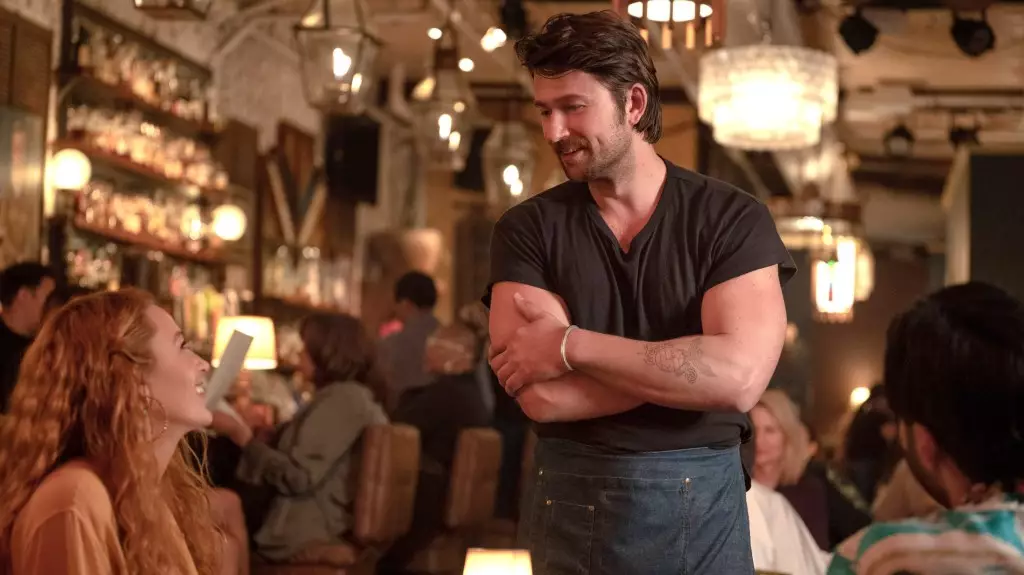The recent allegations leveled by actress Blake Lively against her co-star and director Justin Baldoni have sent shockwaves through Hollywood, igniting a broader discussion around accountability, workplace safety, and the treatment of women in the film industry. The fallout from Lively’s complaint, which details alarming incidents of alleged sexual harassment and a coordinated smear campaign against her, has unveiled the disturbing environment that can exist behind the scenes of even the most seemingly innocent cinematic projects.
A Call for Accountability
Following the filing of an extensive complaint detailing ten specific allegations against Baldoni, actors and other industry professionals have rallied in support of Lively. Brandon Sklenar, who plays Lively’s teenage love in the upcoming film, took to social media to encourage his followers to “FOR THE LOVE OF GOD READ THIS,” emphasizing the importance of awareness regarding the issue at hand. His impassioned plea highlights a burgeoning movement in Hollywood where accountability is becoming the norm rather than the exception. This kind of solidarity among peers is a critical element in changing the narrative around gender-related misconduct, encouraging an environment where survivors feel safe to speak up.
Meanwhile, the responses from various industry figures, including the entire cast of *The Sisterhood of the Traveling Pants*, Gwyneth Paltrow, and even SAG-AFTRA, indicate a shift in Hollywood culture. The entertainment community appears increasingly willing to stand up against misconduct, rejecting the long-standing silence that has permitted such behavior to flourish. However, while the chorus of support is promising, it also underscores how pervasive these issues are, revealing that many well-known figures have encountered similar instances of harassment and intimidation.
Aside from the allegations of harassment, the complaint sheds light on a seemingly orchestrated effort to silence Lively following her decision to speak out. Baldoni’s alleged involvement in this “astroturfing” campaign, which included disseminating negative narratives about Lively, raises serious ethical questions about the lengths to which individuals will go to protect their reputations. The idea that there exists a coordinated effort to discredit or manipulate the narrative surrounding a victim of harassment paints a grim picture of the power dynamics ingrained within Hollywood.
Furthermore, the swift repercussions for Baldoni, including his termination from the WME agency—home to several prominent stars—demonstrate an industry that is starting to hold its members accountable. The subsequent resignation of Liz Plank from Baldoni’s *Man Enough* podcast co-hosting role adds to the urgency of the situation. It indicates a broadening awareness that complicity, even by association, is no longer acceptable.
In times of crisis, the presence of a supportive network matters immensely. The explosive fallout from Lively’s allegations, compounded by the previous public scrutiny faced by Amber Heard, emphasizes how crucial it is for women—especially in high-profile industries like Hollywood—to receive unwavering support from their peers. Lively’s situation, while specific to her experience, serves as a litmus test for a system that is slowly evolving but still rife with legacy attitudes towards gender and power.
The engagement of voices like Sklenar’s, who has vocally condemned the vilification of women in the industry, highlights an emerging ethos that values equity and respect over outdated notions of masculinity. His remarks about the counterproductive nature of online vilification resonates deeply in an age where social media can amplify narratives, both positive and negative, in mere moments.
Blake Lively’s allegations against Justin Baldoni represent more than just a singular incident; they signal a potential turning point in how Hollywood addresses issues of sexual harassment and gender-based discrimination. The rapid mobilization of support, coupled with corporate repercussions, suggests that industry professionals are awakening to the realities of a toxic culture that has persisted far too long. As discussions continue in the wake of these revelations, the hope remains that this is not merely a moment in time but rather the beginning of a serious and necessary reckoning for Hollywood—a movement toward creating a safer, more accountable environment for all artists.

Leave a Reply